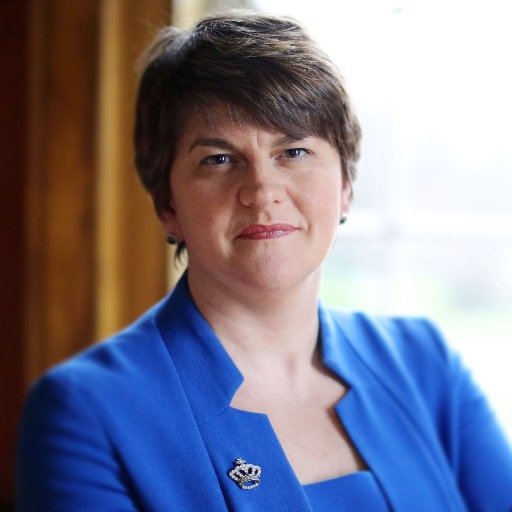
The percentage of American adults who describe themselves as Christians when asked about their religion is down 12 percentage points over the past decade. That’s according to Pew Research Center telephone surveys conducted in 2018 and 2019 which found the current figure to be 65%.
Meanwhile, the religiously unaffiliated share of the population, consisting of people who describe their religious identity as atheist, agnostic or “nothing in particular,” now stands at 26%, up from 17% in 2009.
Both Protestantism and Catholicism are experiencing losses of population share. Currently, 43% of U.S. adults identify with Protestantism, down from 51% in 2009. And one-in-five adults (20%) are Catholic, down from 23% in 2009. Meanwhile, all subsets of the religiously unaffiliated population – a group also known as religious “nones” – have seen their numbers swell. Self-described atheists now account for 4% of U.S. adults, up modestly but significantly from 2% in 2009; agnostics make up 5% of U.S. adults, up from 3% a decade ago; and 17% of Americans now describe their religion as “nothing in particular,” up from 12% in 2009. Members of non-Christian religions also have grown modestly as a share of the adult population.

People living in Ireland are having significantly fewer children now than a decade ago despite the thriving economy, the Central Statistics Office yearbook reveals.
Last year 61,016 babies were born in the Republic, the lowest figure since 2002. That is a fall of 1.6 per cent on 2017’s figure of 62,053 and almost 20 per cent down from the peak in 2009 when 75,554 babies were born.
Despite the fall in births, the population of the Republic has continued to increase because of inward migration and declining deaths and is now almost at 5 million. As a result of this the birth rate – the rate of births per head of population – has fallen even further.
Since the beginning of this century, birth rates in Ireland peaked at 16.8 births per thousand in 2008. It is now down to 12.6 births per thousand, a decrease of 25 per cent .
CSO figures due out at the end of the month will show the replacement rate for the population, which is an average of 2.1 children per woman, will fall below that figure, although the Republic still has one of the highest birth rates in the EU.

31 MLAs, mostly DUP, have signed a petition to recall the Northern Ireland Assembly on Monday to prevent an extreme abortion measure becoming law. It will totally decriminalise abortion up to the point of foetal viability outside the womb which is around 24 weeks.
The petition follows a call from Baroness O’Loan and involves recalling the Assembly to debate whether legislation on abortion would be most appropriately determined by the parliament in the North, rather than by Westminster.
Dawn McAvoy of Both Lives Matter commented, “The majority of people in Northern Ireland do not support the abortion regime being imposed by Westminster. Baroness O’Loan has consistently tried to prevent these changes and has led the calls to reconvene Stormont. Today 31 MLAs have heeded that call.”
McAvoy continues, “Northern Ireland has been without government for over 1000 days. Abortion is not, and never has been the stumbling block. We hope that it might now be the issue that helps bring the Assembly back. We recognise that there is not a unified position on abortion, but there does appear to be agreement that this should be decided at Stormont rather than Westminster. We have done all we can to allow each MLA to stand up and say whether they support the Westminster legislation or oppose it. It is over to them now.”

A University of Chicago academic has conducted research that found almost 96% of biologists surveyed think that life begins at conception.
The research by Steve Jacobs, PhD, found that 5,337 biologists (96%) who responded to a questionnaire affirmed that a human’s life begins at fertilization, with 240 (4%) rejecting that view. The majority of the sample identified as liberal (89%), pro-choice (85%) and non-religious (63%). In the case of Americans who expressed party preference, the majority identified as Democrats (92%).
The survey was for a working paper that was part of Mr Jacob’s dissertation for the University of Chicago’s department of Comparative Human Development.
While the view responds to the descriptive question of when human life begins, it does not answer the normative question of when ought a foetus be worthy of ethical value and legal consideration. However, an attendant survey of 2,899 American adults found that 81% selected biologists as the group most qualified to answer the question of when a human’s life begins, indicating that the great majority think the question can be answered descriptively, rather than normatively.

The Government will give mother and father couples the choice as to whether the man or woman avails of adoptive leave, because male same sex couples will be given the same choice.
The announcement was made by Minister of State for Equality David Stanton in the Dail on Wednesday during discussion on a bill to extend paid parental leave by two weeks.
That bill was originally meant to address a lacuna in the existing law whereby a married male same-sex couple cannot avail of adoptive leave, because it has only applied to an adopting mother, or a sole male adopter, or the adopting father when the mother dies.
However, “over the course of drafting, it became apparent, that in seeking to address an inequality, another inequality could be created,” the Minister said.
By allowing male same sex couples to choose which one of them could take such leave, they would have a right that complementary sex couples would not have.
Consequently, it was decided that legislation would have to cater to both situations. Furthermore, as it was considered too complex to include the bill currently going through the Oireachtas, the provision has been postponed for a future bill.
Fianna Fáil justice spokesman Jim O’Callaghan said however that the legislation constitutes a form of “discrimination against same-sex males who are in a relationship”, as they are “treated differently from same-sex females who are in a marital relationship, so it is a form of gender discrimination against same-sex male couples”. He added, “Similarly, it is discriminatory because a straight man who is adopting would not find himself in the same position as gay men will find themselves in respect of seeking parent’s benefit and leave, and so, in that regard, it is a form of sexual orientation-based discrimination”.

A former captain of the Tyrone GAA ladies team has said she is considering voting for the DUP because of the party’s pro-life stance.
Lisa O’Hare said she can no longer vote for Sinn Féin or the SDLP because she does not agree with their enabling of an extreme abortion law being imposed on NI by Westminster.
“As an Irish Catholic who places God at the centre of my home and my heart we don’t have anyone who represents our views,” said Ms O’Hare.
That is why she is now looking “beyond the normal tribal differences and religious differences”.
She told the BBC’s The View programme that “the DUP is the only party” in Stormont who seem to be opposing these laws.
Mrs O’Hare, who captained the Tyrone ladies team to Ulster final glory in 2000, said she has grave concerns about changes voted through at Westminster.
“We’ve seen from the guidelines published this week that this is about targeting the most vulnerable in society,” she said
“As the mother of a son with Down’s Syndrome, the idea that he has been set apart as someone who is less valuable to society is abhorrent to me.
“Every life is precious and shouldn’t be judged on health, well being or social circumstance,” she added.

Religious politicians should not let their faith inform their politics.
That seems to be the message of Labour leader, Brendan Howlin, who took Archbishop Eamon Martin to task for comments he made at the Kennedy Summer School last month.
Mr Howlin attributed to Dr Martin the view that Catholic politicians had a responsibility to support laws which uphold the dignity of every human person, and that they should not compartmentalise their lives into separate spiritual and secular spheres.
Mr Howlin, however, said that as Ireland becomes more pluralist and multicultural, “the idea of Catholic politicians could become deeply problematic, especially for growing minority groups”.
“Is it not time we left those types of characterisations in the past? In a republic, we cherish the right of everybody to adhere to and express the religion of their choice, but we should not revert to a time when clerics instructed politicians, as used to be the case in both this jurisdiction and the North,” he said.
In response, the Taoiseach cited St. John Henry Newman that when he learned about the new doctrine of papal infallibility, he said he would drink to the Pope, but would first drink to his own conscience.
“What St. John Henry Newman was encapsulating in that was the idea in the Catholic faith that allows people to act according to their conscience, even Catholic politicians,” he said.

The DUP leader Arlene Foster has backed a call by Baroness Nuala O’Loan for the restoration of the Northern Ireland Assembly to stop an extreme abortion measure from becoming law.
Baroness O’Loan has written a letter to the Northern Ireland Secretary Julian Smith, referring to a petition signed by 23,000 people and urging him to recall the assembly before the change to abortion laws comes in next week.
The peer described the situation in her letter as “unprecedented”.
Ms Foster said the DUP’s assembly team met on Monday and agreed to seek a recall of the assembly.
“Our MLAs will return to the chamber without pre-condition. There are serious matters emanating from the NI (Executive Formation etc) Act 2019 which should be decisions made in Stormont. We urge other MLAs who oppose the extreme liberalisation of our abortion law, to step outside any party shackles and join us in recalling the assembly,” she said.
“It’s time to get Northern Ireland moving again.”
The number of same-sex marriages has dropped following an initial spike after the marriage referendum in 2015, figures from the Civil Registration Service show.
In the first year same-sex marriage was legal some 1,056 couples officially wed. This fell to 759 in 2017 and was down to 664 last year. Same-sex marriages accounted for just over 3 per cent of the 21,052 marriages registered last year. Sixty-six of the same-sex couples who got married last year had been together in civil partnerships beforehand.
Figures also show that 75 individuals applied to have their gender legally changed last year, up from 60 the previous year, but slightly less than the 77 who did so in 2017. Fifty-six people availed of the legal change in 2015, the first year of the operation of the new gender change Act which allows individuals to change their legal gender based on their own self-assessment.

A new US study has found a decreased incidence of marital infidelity among those with fewer sexual partners over their lifetime.
Among the participants, 16% of married adults had committed sexual infidelity at least once in their current marriage. However, for people who reported four or fewer lifetime sexual partners, the rate of infidelity in the current marriage dropped to 11%, while for those who had five or more sexual partners the number was nearly double (21%).
In addition, starting with their first sexual experience, 49% of those with fewer partners said their first time was with someone that they loved, compared with 37% of those with more sex partners. Similarly, 42% of those with fewer partners reported that their first time was in the context of an extended relationship. The number is just 30% for those who have had more partners.